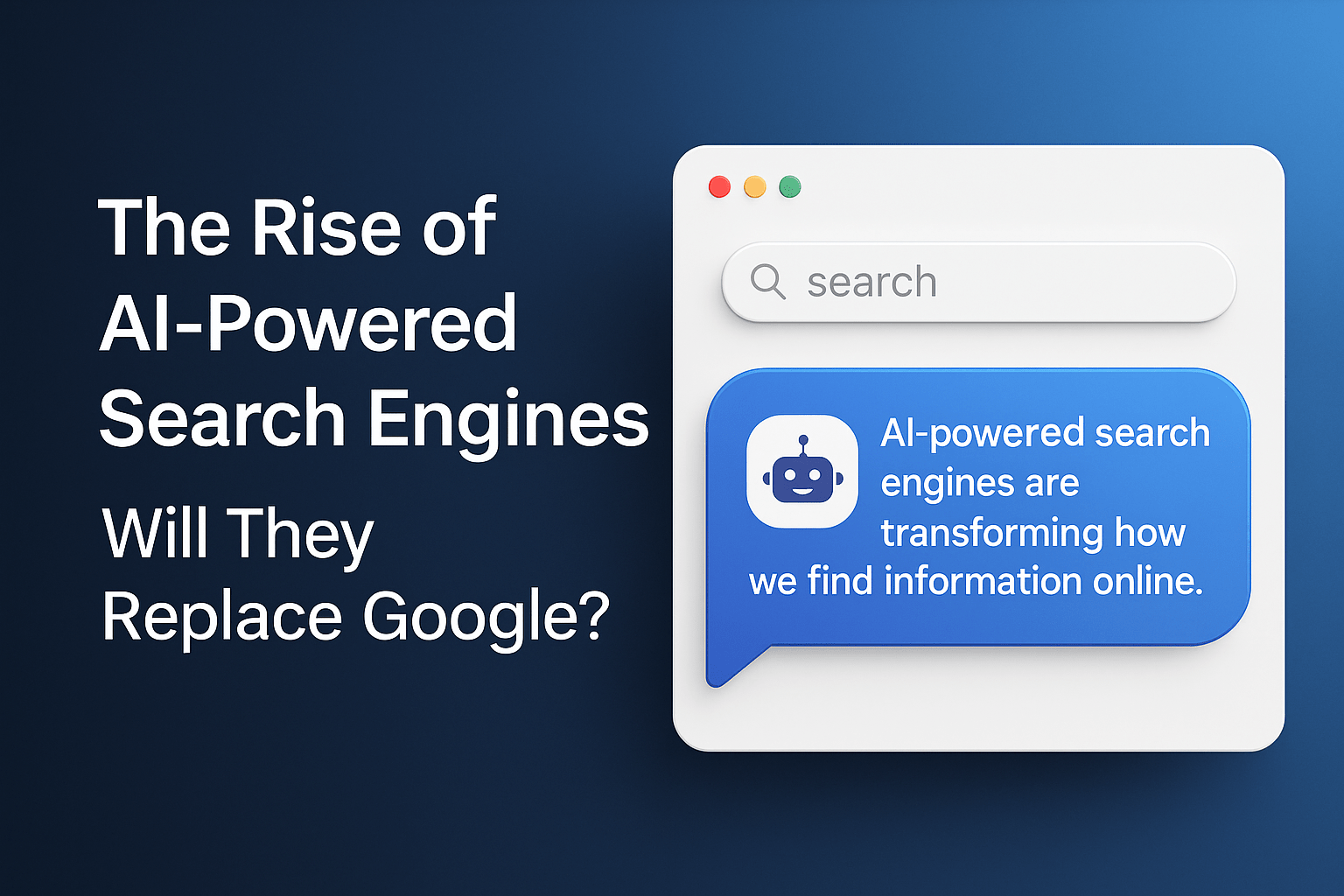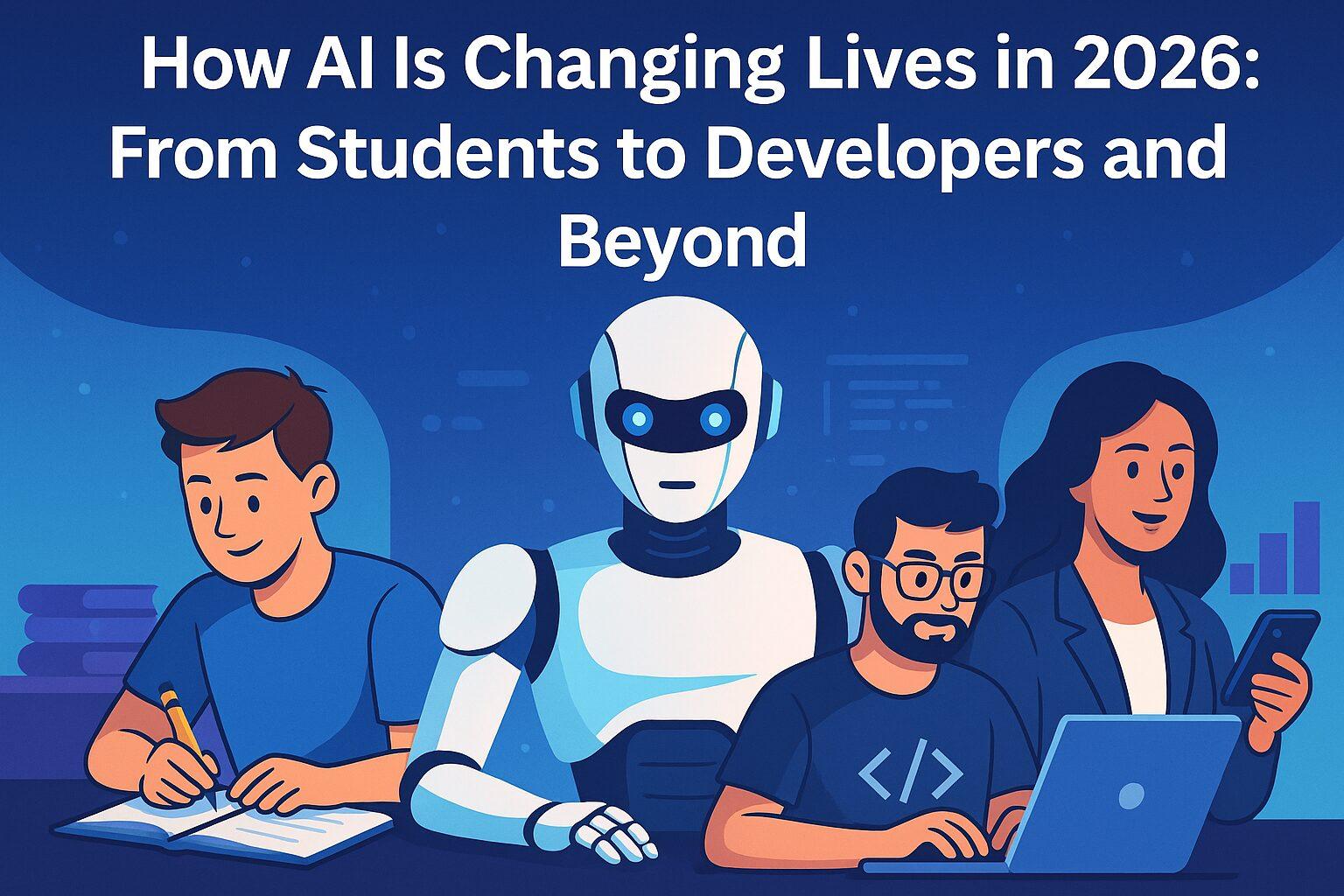AI Search Engines 2025: Will They Replace Google?
Explore how AI search engines like Bing AI, Perplexity, and You.com are changing search in 2025—and whether they can replace Google.
Introduction
For over two decades, Google has been the undisputed king of online search. Whenever people had questions, they turned to Google. But in 2025, the rise of artificial intelligence has sparked a new era of search technology. AI-powered search engines like Bing AI, Perplexity AI, and You.com are reshaping how users interact with information. Instead of providing endless lists of links, these engines deliver instant, conversational answers. But will AI search engines truly replace Google, or will they remain complementary tools? This article explores their rise, strengths, challenges, and future potential.
How AI Search Engines Work
Traditional search engines rely on crawling, indexing, and ranking web pages. They show users a list of results ranked by relevance. In contrast, AI-powered search engines use large language models (LLMs) and natural language processing (NLP) to provide direct, summarized answers. They analyze context, intent, and personalization factors, giving users a conversational experience.
For example, instead of typing “Best laptops 2025” and scrolling through links, an AI search engine might immediately summarize the top 5 laptops with specs, pros, and cons.
Advantages of AI Search Engines
- Faster Answers: AI delivers summarized results instantly without forcing users to scroll through multiple websites.
- Conversational Experience: Users can ask follow-up questions like they would in a chat.
- Personalization: AI tailors responses to a user’s history, preferences, and behavior.
- Multi-Source Integration: Pulls data from multiple sites and combines them into one clear answer.
- Enhanced Discovery: AI suggests related questions and topics users may not have considered.
Challenges of AI Search Engines
- Accuracy Issues: AI sometimes hallucinates facts or generates outdated information.
- Bias Concerns: Models reflect the biases of their training data, which can lead to skewed answers.
- Limited Transparency: Unlike Google’s clear ranking system, AI models are black boxes.
- Monetization: AI responses reduce clicks to websites, challenging ad-based revenue models.
- Data Privacy: AI systems collect and process more personal data, raising privacy concerns.
Popular AI Search Engines in 2025
Several AI-powered search engines are making waves in 2025:
- Bing AI: Microsoft’s integration of OpenAI models into Bing transformed it into a conversational engine.
- Perplexity AI: Known for its clean interface and reliable citations.
- You.com: Offers personalized, AI-driven results with productivity integrations.
- Neeva AI: Focuses on privacy-friendly AI-powered results (subscription-based).
- Google SGE: Google’s Search Generative Experience integrates AI into search results.
Impact on Google
Google remains the leader in 2025 with over 80% market share, but AI competitors are gaining momentum. Google’s Search Generative Experience (SGE) integrates AI answers into search results, but critics argue it feels less innovative than some rivals. For now, Google’s vast ecosystem of ads, Gmail, YouTube, and Maps makes it hard to dethrone. However, AI search engines are carving out niches—especially among students, researchers, and tech-savvy users.
Will AI Replace Google?
The short answer: not anytime soon. While AI-powered search engines are faster, smarter, and more conversational, Google’s dominance comes from its ecosystem, trust, and brand recognition. Instead of fully replacing Google, AI search is more likely to exist alongside it. For example, users might rely on AI search for quick summaries but still use Google for deeper research or shopping.
Comparison Table: AI Search Engines vs Google
| Feature | AI Search Engines | |
|---|---|---|
| Response Style | Conversational, summarized | List of links, with AI snippets (SGE) |
| Speed | Very fast | Fast but requires clicks |
| Accuracy | Good but prone to errors | More reliable (with sources) |
| Transparency | Limited | Stronger ranking signals |
| Monetization | Still evolving | Ads-based, proven |
| Market Share 2025 | ~15% combined | 80%+ |
Best Use Cases for AI Search
- Students: Quick answers for assignments and summaries.
- Professionals: Faster decision-making with instant reports.
- Researchers: Summarizing multiple sources into one.
- Casual Users: Conversational Q&A like ChatGPT but with live data.
Frequently Asked Questions (FAQs)
Are AI search engines better than Google?
Not always. AI is better for summaries, but Google is more reliable for detailed research.
Can AI replace traditional search?
No, but it will complement it by offering faster answers.
Which is the best AI search engine in 2025?
Perplexity AI is praised for citations, while Bing AI is popular for free use.
Does AI search respect privacy?
Some like Neeva AI focus on privacy, but most collect user data. Check each provider’s policy.
How does Google respond to AI competitors?
Google introduced SGE and other AI features to stay competitive, leaning on its ecosystem and data advantages.
AI-powered search engines are not killing Google, but they are revolutionizing how we access information. In 2025, students, professionals, and casual users alike benefit from faster, smarter, and more conversational answers. While Google remains dominant, the rise of Perplexity, Bing AI, and You.com signals the start of a new era in online search. Instead of thinking of AI as a replacement, it’s best to see it as an evolution—shaping the future of how we search.


